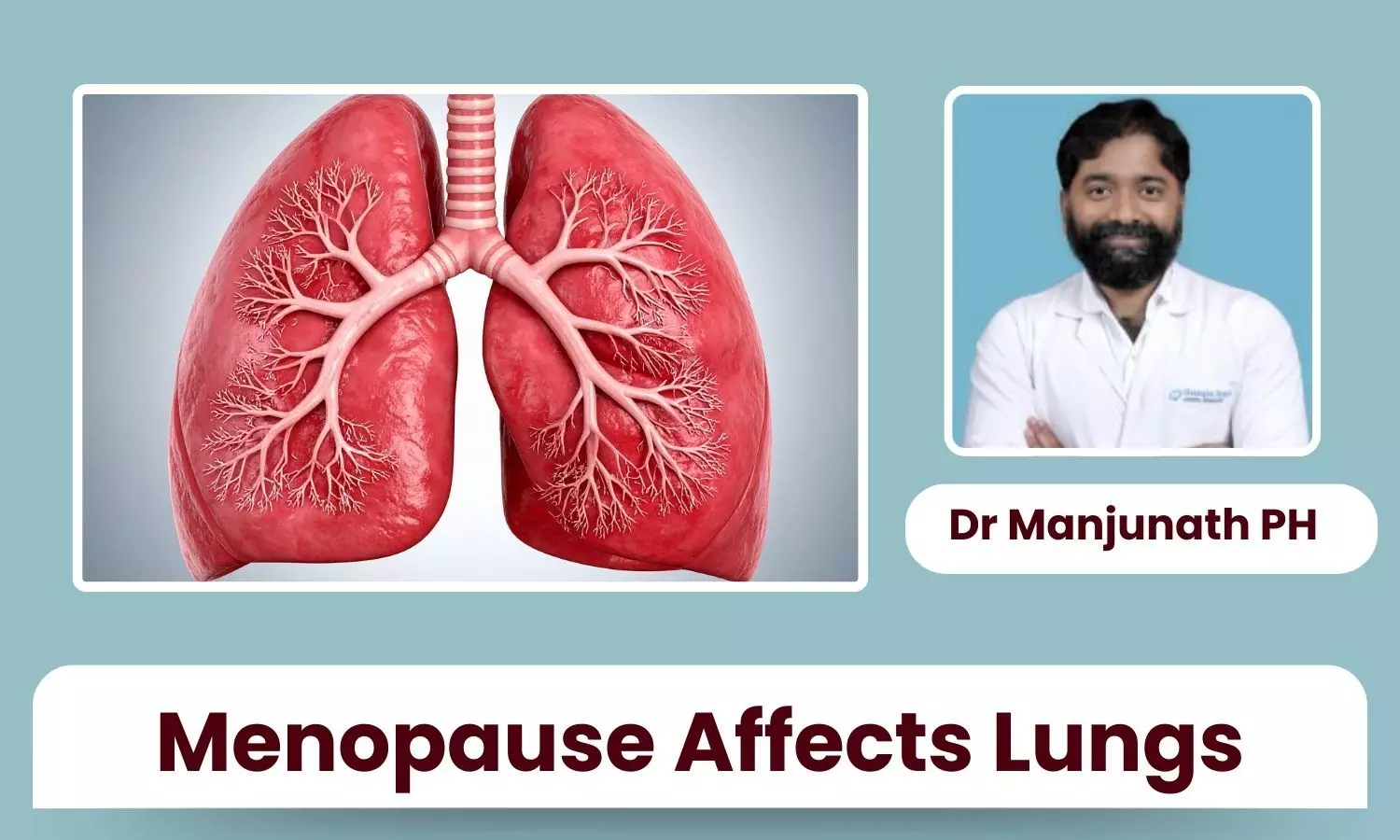Lungs in Menopause: Why Hormones Influence Breathing Too - Dr Manjunath PH

When women think about menopause, what usually comes to mind are hot flashes, sleep disturbances, or mood swings. But few realise that the hormonal changes during this stage can also influence something as basic and vital as breathing. The lungs, often left out of women’s health conversations, are not immune to the effects of fluctuating estrogen levels.
How Hormones Shape the Airways
Estrogen and progesterone influence more than just reproduction — they also help maintain healthy lungs. These hormones keep airway muscles flexible, support blood flow in lung tissue, and assist the brain in regulating breathing.
As estrogen levels fall during perimenopause and menopause, the protective balance begins to shift. Airways may become slightly more reactive and inflamed, leading to symptoms that resemble asthma or chronic cough. Some women describe a new sense of breathlessness when climbing stairs or exercising, even without a history of lung disease.
While the change may be subtle at first, it’s part of a larger pattern. Studies have shown that postmenopausal women can experience a gradual decline in lung capacity — similar to what happens naturally with age, but at a slightly faster pace when estrogen drops sharply.
Why Breathing Feels Different
Estrogen helps the airways stay supple and reduces the body’s inflammatory response to dust, pollution, and infections. When hormone levels dip, even small irritants can trigger coughing or wheezing. Progesterone also influences how deeply and regularly we breathe, so its decline can lead to changes in breathing rhythm and a feeling of “air hunger.”
Many women in their forties and fifties report new respiratory symptoms they’ve never had before — morning cough, mild wheezing, or shortness of breath during exertion. These are often brushed aside as “lack of fitness” or blamed on weight gain, but in reality, hormonal changes could be a part of the explanation.
The Overlap with Other Conditions
Menopause often coincides with other shifts in health: weight changes, altered sleep patterns, and a slower metabolism. These can compound lung issues. Extra weight around the abdomen can restrict breathing movements, while disrupted sleep may worsen fatigue and anxiety, which in turn heighten the perception of breathlessness.
Women who already have asthma sometimes notice their symptoms become harder to control after menopause. The decline in estrogen can make airways more irritable, increasing the frequency or severity of attacks.
For others, chronic cough or throat clearing may appear for the first time. Unfortunately, such symptoms are often misattributed to allergies or aging, delaying diagnosis and care.
Protecting Lung Health Through the Transition
The positive news is that these effects can be controlled. Staying active through walking, yoga, or swimming helps keep the airways supple and strengthens the muscles used for breathing.
Steering clear of indoor smoke, incense, and kitchen fumes can ease irritation, particularly for women who spend more time at home. Simple habits like switching on an exhaust fan or letting fresh air circulate through open windows can help the lungs stay comfortable.
Staying well-hydrated is often overlooked. When the airways become dry, they’re more likely to get irritated. Drinking enough water through the day keeps mucus thin and easier to clear.
If a cough, breathlessness, or chest tightness keeps coming back, it’s best to see a doctor rather than treat it on your own. A simple breathing test can show if the airways are inflamed or restricted. With timely care — like mild inhalers or guided breathing practice — symptoms often settle and further damage can be avoided.
A Broader Look at Women’s Wellness
Menopause marks a natural phase of transition, not decline. But it’s also a reminder that hormones influence far more than reproduction. Just as bones and the heart need protection during these years, so do the lungs.
Raising awareness about respiratory health in menopausal women can help detect issues early and improve quality of life. It’s time we include the lungs in the larger discussion about women’s wellness — because breathing well is as essential to healthy aging as balanced hormones or strong bones.
Disclaimer: The views expressed in this article are of the author and not of Health Dialogues. The Editorial/Content team of Health Dialogues has not contributed to the writing/editing/packaging of this article.


